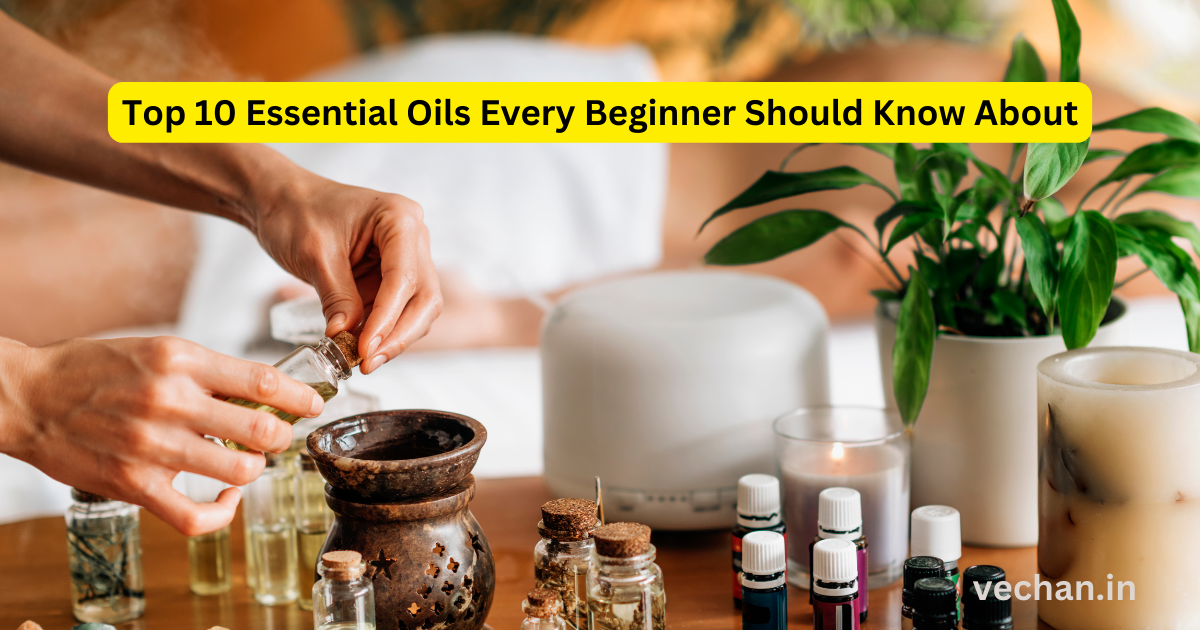essential oil, Health Tips
Top 10 Essential Oils Every Beginner Should Know About
Exploring the Top 10 Essential Oils Every Beginner Should Know About
Essential oils have gained immense popularity in recent years, thanks to their therapeutic properties and versatile uses. For beginners looking to delve into the world of essential oils, understanding the basics and knowing where to start can be overwhelming. In this guide, we’ll explore the top 10 essential oils that every beginner should know about, their benefits, and how to use them effectively.
- Lavender Oil: Lavender essential oil is often considered a must-have for beginners due to its wide range of benefits. It’s known for its calming and relaxing properties, making it ideal for reducing stress, promoting better sleep, and soothing skin irritations like minor burns or insect bites. Simply add a few drops to a diffuser for a peaceful ambiance or dilute with a carrier oil for topical application.
- Peppermint Oil: Peppermint essential oil is prized for its invigorating scent and various health benefits. It can help alleviate headaches, improve focus and mental clarity, relieve nausea, and soothe muscle aches when used topically. Diffusing peppermint oil can also help clear the respiratory system and provide a refreshing boost of energy.
- Tea Tree Oil: Tea tree essential oil is renowned for its antimicrobial and antifungal properties, making it a go-to choice for skincare. It can help treat acne, fungal infections, and even dandruff. When using tea tree oil, always dilute it with a carrier oil to avoid skin irritation and perform a patch test first, especially for those with sensitive skin.
- Lemon Oil: Lemon essential oil offers a bright and uplifting aroma, perfect for enhancing mood and purifying the air. It’s also a natural disinfectant, making it a great addition to homemade cleaning products. Lemon oil can be added to a diffuser, mixed with water for a refreshing room spray, or used in DIY cleaners to add a fresh citrus scent.
- Eucalyptus Oil: Eucalyptus essential oil is well-known for its respiratory benefits. It can help relieve congestion, ease breathing during colds or allergies, and act as a natural decongestant. Adding a few drops of eucalyptus oil to a bowl of steaming water for inhalation or using it in a chest rub can provide soothing relief.
- Frankincense Oil: Frankincense essential oil has been used for centuries for its calming and grounding properties. It’s often used in meditation practices to promote relaxation and spiritual connection. Frankincense oil can also benefit the skin, helping reduce the appearance of fine lines and supporting overall skin health.
- Chamomile Oil: Chamomile essential oil, particularly Roman chamomile, is prized for its soothing and anti-inflammatory properties. It’s gentle enough for sensitive skin and can help alleviate skin redness, irritation, and minor wounds. Chamomile oil can also be used aromatically to promote relaxation and better sleep.
- Rosemary Oil: Rosemary essential oil is known for its stimulating and clarifying effects. It can improve focus, boost memory retention, and invigorate the senses. Rosemary oil is often used in hair care products for its potential to promote scalp health and stimulate hair growth.
- Ylang Ylang Oil: Ylang ylang essential oil has a sweet floral aroma and is prized for its mood-enhancing properties. It can help reduce feelings of stress, anxiety, and depression, promoting a sense of well-being and relaxation. Ylang ylang oil is commonly used in perfumes, massage oils, and aromatherapy blends.
- Cedarwood Oil: Cedarwood essential oil has a warm and woody scent that promotes a calming atmosphere. It can help reduce tension, support relaxation, and improve sleep quality. Cedarwood oil is often used in skincare products for its astringent and anti-inflammatory properties, making it beneficial for acne-prone or oily skin.
